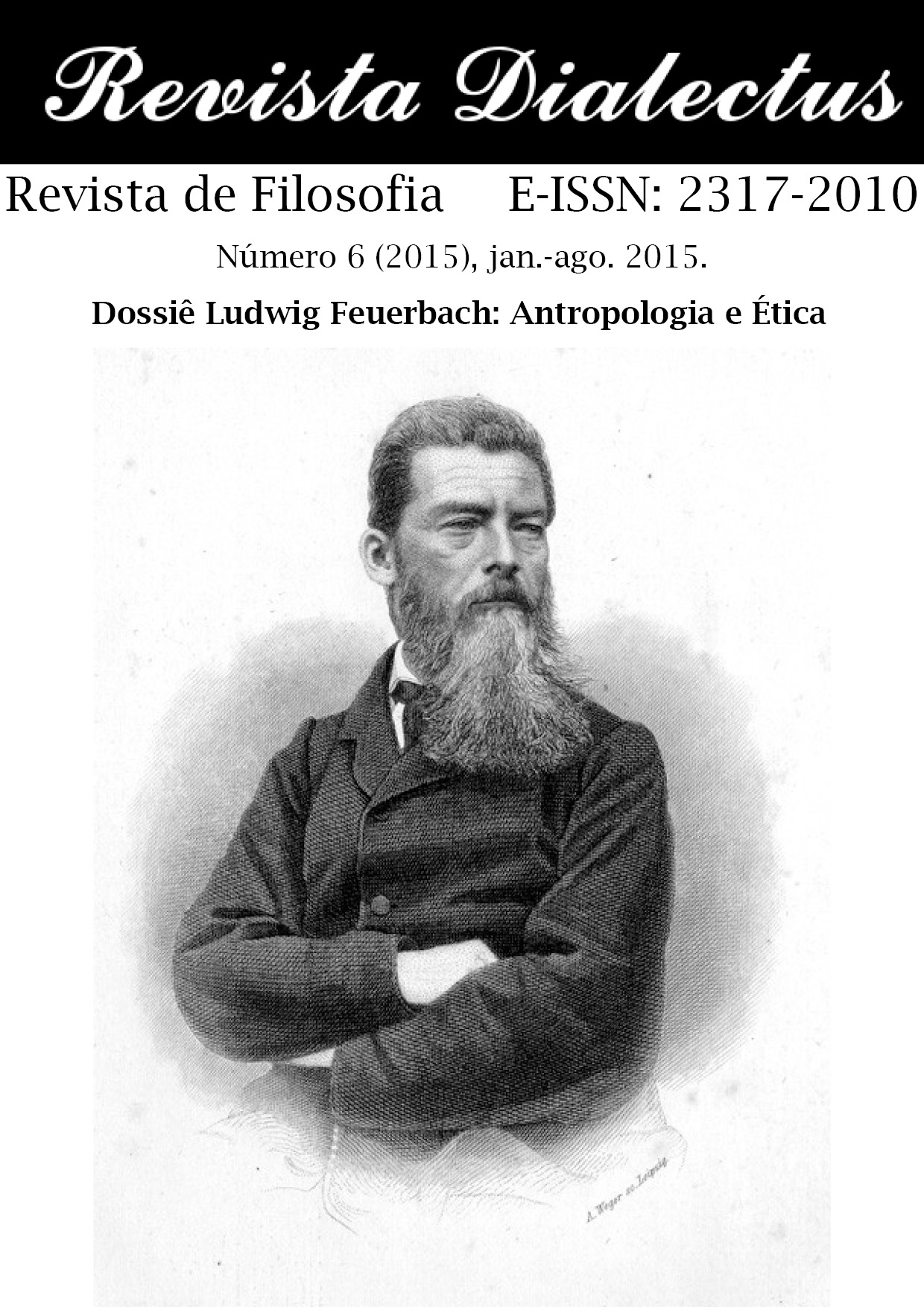EUDEMONISMO Y LIBERTAD EN LA FILOSOFÍA MORAL DE LUDWIG FEUERBACH
DOI:
https://doi.org/10.30611/2015n6id5203Abstract
El trabajo filosófico de Ludwig Feuerbach es conocido, principalmente, por su crítica religiosa y filosófica, la cual, a su vez, asienta las bases de su característica antropología filosófica. En este sentido, la antropología feuerbachiana viene definida principalmente por los conceptos de Gattungswesen y Sinnlichkeit, los cuales denotan el carácter eminentemente relacional y sensible del ser humano. Teniendo esto en cuenta, el objetivo del presente trabajo es presentar la filosofía moral de Feuerbach desde la perspectiva eudemonista que la caracteriza a partir de la concepción antropológica sobre la que se sustenta, definida por el principio de Sinnlichkeit. En este sentido, la categoría fundamental de la propuesta ética de Feuerbach radica en el impulso de felicidad, definido ante todo en términos sensibles y de reciprocidad. Así mismo, el trabajo reflexiona sobre las implicaciones del eudemonismo y sensualismo con respecto a la libertad humana y su conciliación con la determinación natural que se deriva de la antropología feuerbachiana.Downloads
Published
2016-10-06
Issue
Section
Dossiê Ludwig Feuerbach: Antropologia e Ética
License
Authors who publish in this journal agree to the following terms:
- Authors retain the copyright and grant the journal the right of first publication, with the work simultaneously licensed under the Attribution-NonCommercial-NoDerivatives 4.0 International (CC BY-NC-ND 4.0) License, which allows the non-commercial sharing of work, without modifications and with acknowledgment of authorship and initial publication in this journal.
- Authors are authorized to take additional contracts separately, for non-exclusive distribution of the version of the work published in this journal (eg publish in institutional repository or as a book chapter), with acknowledgment of authorship and initial publication in this journal.
- Authors are allowed and encouraged to publish and distribute their work online (eg in institutional repositories or on their personal page) at any point before or during the editorial process, as this can generate productive changes as well as increase the impact and citation of published work (See The Free Access Effect).



















